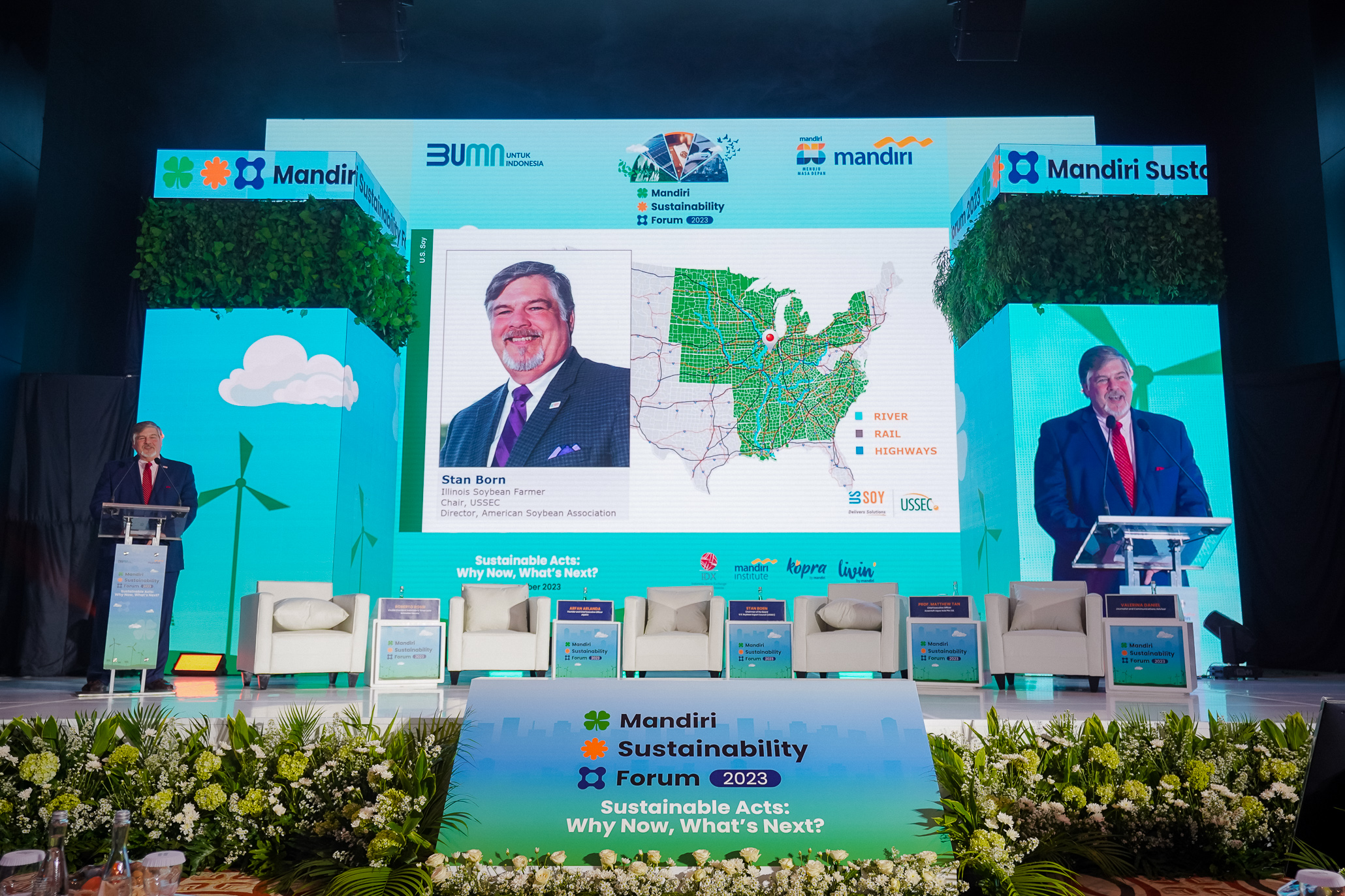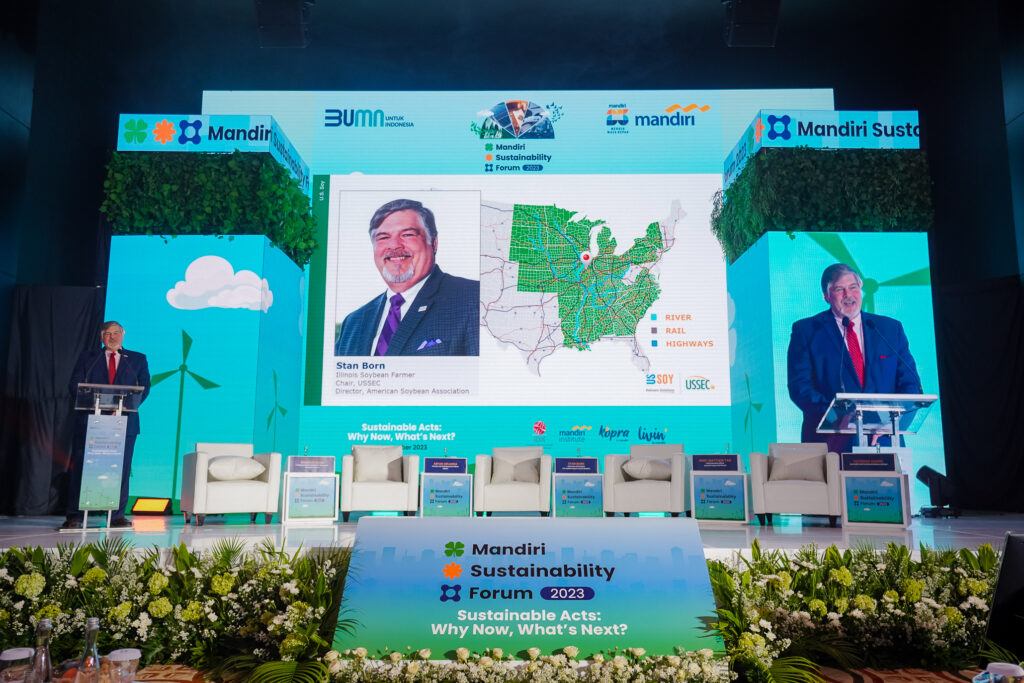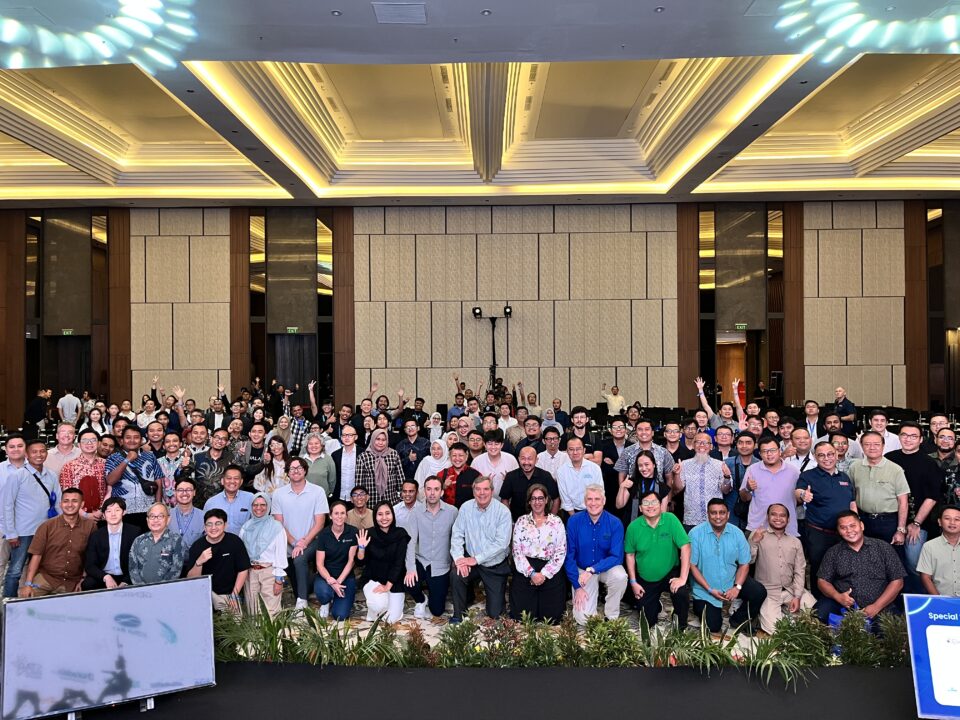

At the Mandiri Sustainability Forum 2023 in Jakarta, Indonesia, Stan Born, USSEC Chairman, shared insights from the U.S. Soy industry in advancing sustainable agriculture, addressing pivotal themes that encompass the adoption of environmental, social, and governance (ESG) practices, the evolving role of future financing, and its impact on global food security. Hosted by Bank Mandiri, Indonesia’s largest commercial bank, the platform gathered investors, businesses and policymakers to explore trends in ESG implementation and introduce recent developments in sustainability issues and standards.
Research conducted by the Mandiri Institute in 2022 revealed that approximately 92% of surveyed companies considered ESG in their business practices. However, challenges persisted, particularly in determining ESG-related criteria, metrics and key performance indicators, hindering seamless integration for these companies.
The Role of Finance in Catalyzing Sustainability
A key topic at the forum centered on the instrumental role banks and financial institutions could play in catalyzing ESG implementation among businesses. Redirecting financing emerged as a focal point, highlighting how financial entities could encourage sustainable practices, particularly in promoting initiatives aligned with sustainable agriculture and ensuring food security.
"Strategic policies are crucial to promoting sustainable agriculture and fostering environmentally conscious farming practices,” says Born. “Establishing robust value chain relationships, implementing diverse programs to incentivize farmers, advocating for research and education and providing accessible technical assistance are key components to foster widespread adoption of sustainable agriculture."
These insights underscore the transformative potential of technology and innovation within the U.S. Soy industry, illustrating their vital role in steering sustainable agricultural practices on a global scale.
Aligning Business Strategies with Sustainability Goals
Throughout the discussions, the need for continuous improvement and a sustainability mindset across all industries emerged as a recurring theme. Born highlighted the role of technology adoption in the U.S. Soy industry and innovative practices that have enhanced productivity while upholding sustainability benchmarks. The U.S. Soy industry's sustainability practices, including enhanced water and fertilizer management, have resulted in positive impacts on both environmental conservation and business revenues.
Born pointed out the dynamic shift in the global business landscape, highlighting the concerted efforts of companies worldwide to realign their strategies with sustainability goals. He emphasized the role of the financial sector in spearheading the widespread adoption of ESG practices within businesses.
U.S. Soy Industry’s climate Response: Certifications and Sustainable Practices
The discussions delved into various aspects, encompassing assessments of tangible ESG benefits, exploration of emerging trends, technological advancements, and the financial sector's contribution to nurturing sustainable practices.

Born shared insights into the U.S. Soy industry's response to climate change, the significance of verification programs like the U.S. Soy Sustainability Assurance Protocol (SSAP) for advancing sustainable agriculture and the importance of labeling for consumer packaged goods like the use of the Sustainable U.S. Soy (SUSS) logo.
This story was partially funded by U.S. Soy farmers, their checkoff and the soy value chain.
